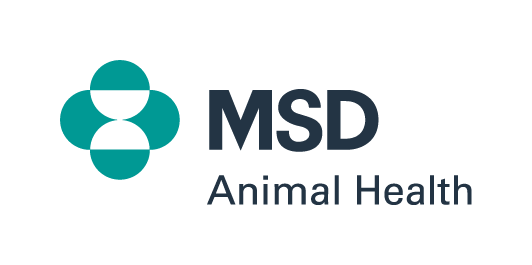Fighting Rabies, One Hero at a Time
Dr. Sergio Recuenco organizes a crew in Guatemala to test bat brains for signs of disease. Meanwhile, in India, Rachel Wright teaches children how to live safely with dogs and prevent dog bites. The two researchers may be nearly 10,000 miles apart, but they are fighting the same battle: to eliminate rabies.
“Rabies is one of the oldest and deadliest diseases on earth,” says Alasdair King, Director, MSD Animal Health International Veterinary Health Team. “Each year, 59,000 people die from rabies, even though it is highly preventable through routine vaccination.”
Because of the devastating impact of rabies on humans and animals, our company has a long history of supporting research on rabies control and mass canine vaccination in high-risk regions where vaccination is often inaccessible. In 2019 alone, we donated three million doses of our rabies vaccine to areas in need.
To further demonstrate our company’s ongoing commitment to help eliminate rabies worldwide by 2030, we recently launched the Rabies Hero Awards, recognizing those who are making a difference in the fight against rabies.
What are “Rabies Heroes”? They come in many forms. They lead research to help the world better understand the disease and work to introduce new policies at government and international levels to protect people and animals. They teach children how to live safely with dogs and work with minimal resources to ensure dogs are vaccinated.
“Their jobs may vary, but one thing is clear,” says Alasdair. “Without these heroes, we would not stand a chance of winning the battle against rabies.”
Below, are the first five recipients of the Rabies Hero Awards. When it comes to working hard to eliminate rabies, they stand up and stand out. We’re honored to shine the spotlight on these outstanding individuals.
Dr. Sarah Cleaveland
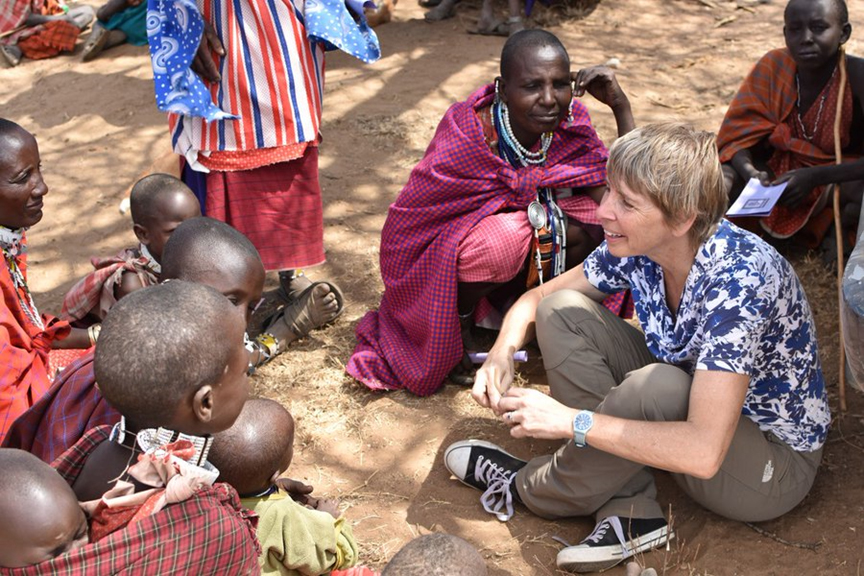
Dr. Sarah Cleaveland is well-known in her field for her passion and commitment to saving people from disease. She is the founder of the Afya Foundation and professor of Comparative Epidemiology, Institute of Biodiversity, Animal Health and Comparative Medicine, University of Glasgow.
“I’m deeply honored to receive this award, which reflects the work of so many people committed to eliminating rabies from the world,” says Dr. Cleaveland. “However, I’m baffled that more than 100 year after Louis Pasteur developed the first rabies vaccines and after extensive research to show that rabies elimination is feasible, how can it be true that so many people are still suffering such horrifying deaths from a disease that is so preventable? The veterinary profession has many responsibilities, but we have to find a way to scale up mass dog vaccination. What can be more important than protecting millions of the most vulnerable people in the world from such a terrible disease?”
Our company’s commitment to rabies research dates to 1996 when we supported supporting a research project led by Dr. Cleaveland. The project demonstrated that the transmission of rabies could be controlled and eventually eliminated by vaccinating domestic dogs in the Serengeti, protecting wildlife, domestic animals and local villagers.
Dr. Renée van Rheede van Oudtshoorn
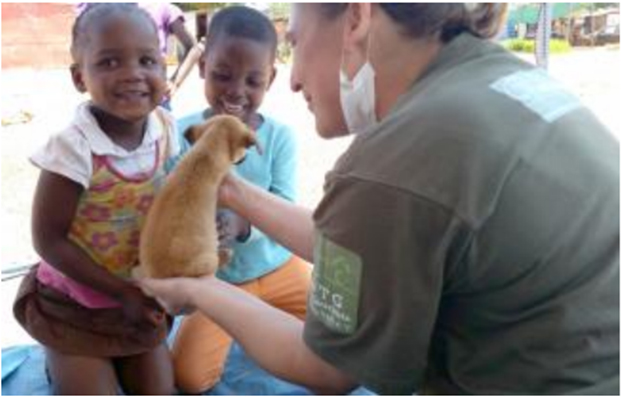
Dr. Renée van Rheede van Oudtshoorn is a recipient of a Rabies Hero Award for her work with the Community Veterinary Services for Southern Africa. Working in villages and towns in South Africa, Zimbabwe and Botswana, Renée regularly manages rabies campaigns, providing free sterilizations and vaccinations to the animals in poor rural areas where access to veterinary care is limited. Renée has worked to protect people for over a decade, empowering communities against rabies.
Rachel Wright
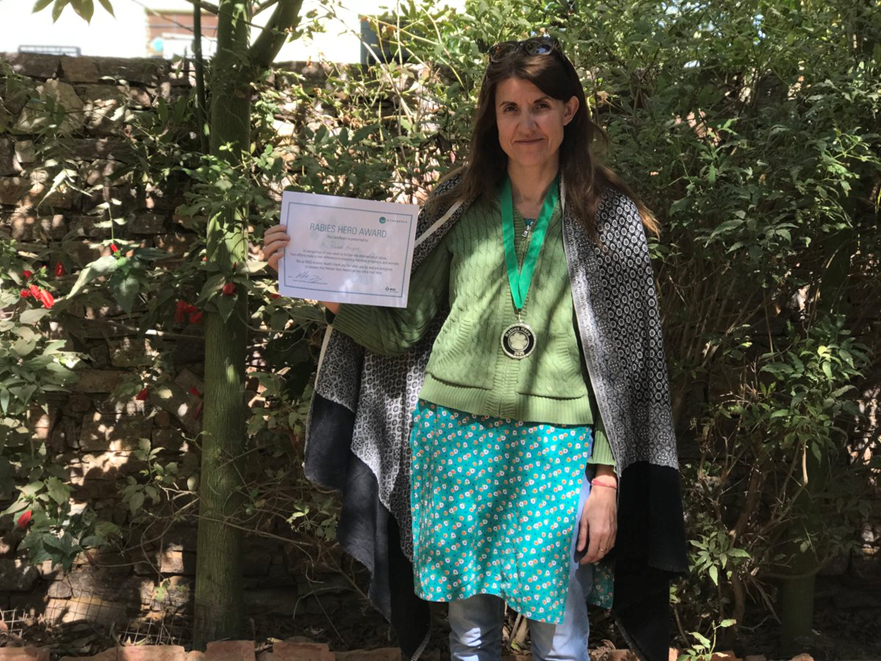
Rachel Wright receives a Rabies Hero Award for her dedication to the Tree of Life for Animals (TOLFA) charity based in India. Rachel founded TOLFA in 2005. She educates local children and rural communities about the benefit of rabies vaccinations for animals and people and teaches dog bite prevention and first aid. As a part of these efforts, Rachel liaises with local humanitarian nongovernmental organizations and schools, so that when rabid dog bites are reported, a smooth rescue operation is in place, and the affected community members receive rabies vaccinations.
“India has the highest number of rabies cases of anywhere in the world, mostly due to the high level of stray dogs living on the streets,” says Rachel. “Seeing a dog with rabies can be a part of people’s everyday life, and even as a trained veterinary professional, it can be a devastating and terrifying experience. Over the last 15 years with TOLFA working in this area, it has been amazing to see how people’s perceptions of the dogs are changing from a fear-based attitude to being kinder and more friendly toward them.”
Dr. Sergio Recuenco
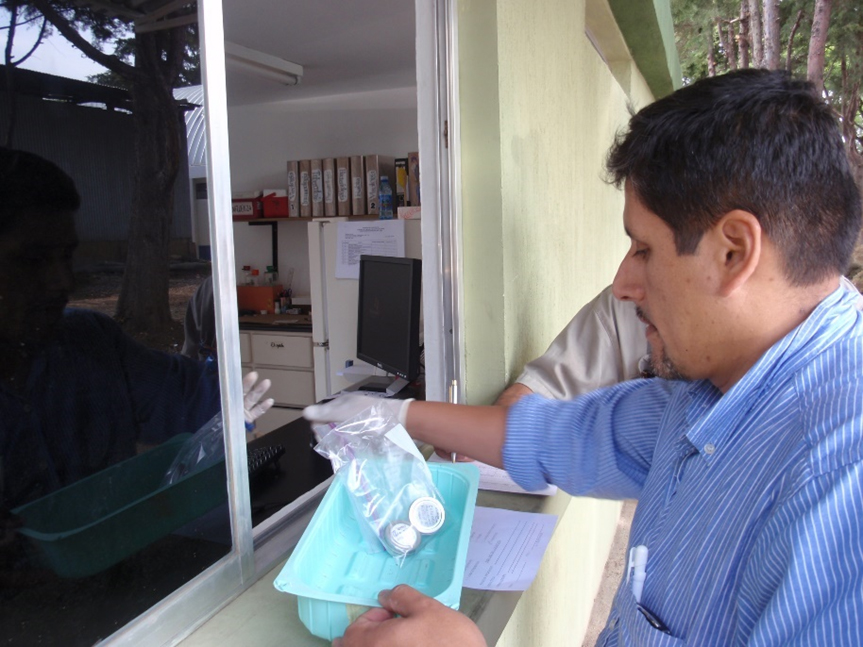
“Rabies deaths are avoidable,” says Dr. Sergio Recuenco, another recipient of a Rabies Hero Award. He has campaigned passionately for the indigenous people of the Peruvian Amazon and is a leader in the field of rabies being transmitted via vampire bats.
“The fact that people still die with this disease in the 21st century, when all tools to prevent it are known and available, is the most powerful indicator of unacceptable global health disparities,” he says.
Dedan Ngatia
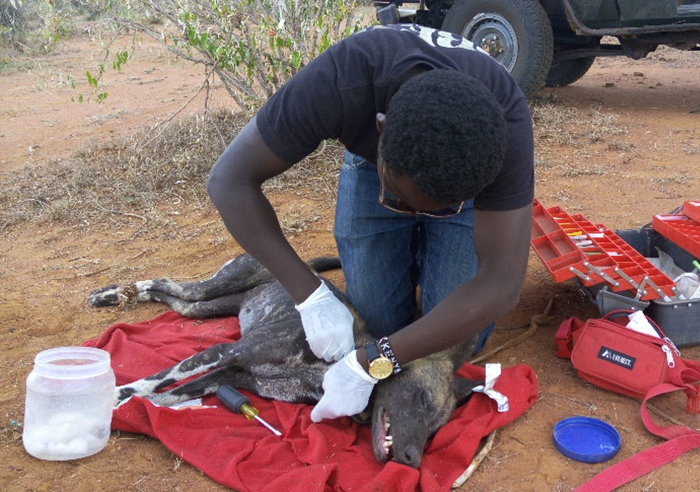
Dedan Ngatia has been a key leader in the Laikipia Rabies Vaccination Campaign (LRVC) with its annual mobile, free rabies vaccination clinic. He also is among the first recipients of a Rabies Hero Award.
The LRVC serves as a pilot for rabies elimination throughout Kenya. Dedan has worked side-by-side with community leaders, businesses and the county government to teach lessons to adults and youth in village meetings, schools and online forums. Most people in Laikipia County are pastoral, which means they own many dogs to help them defend and herd their livestock. There is a high level of mixing between humans, domestic dogs and wildlife, which creates an environment where rabies outbreaks are frequent and devastating for both people and endangered wildlife. In addition, Dedan has developed programs alongside community leaders to educate the people of Laikipia on rabies awareness, prevention and best practices for caring for dogs and cats.
Dedan has greatly expanded the number of dogs and cats treated through the LRVC and helped grow the number of communities reached by the campaign. Since the effort began in 2015, about 30,000 rabies vaccinations have been administered to dogs and cats in Laikipia county. An estimated 300,000 people have benefited from the vaccination of these animals.
You can follow news about the Rabies Hero Awards on the MSD Animal Health Twitter accounts, using the hashtags #RabiesHero, #EndRabiesNow and #ZeroBy30.
